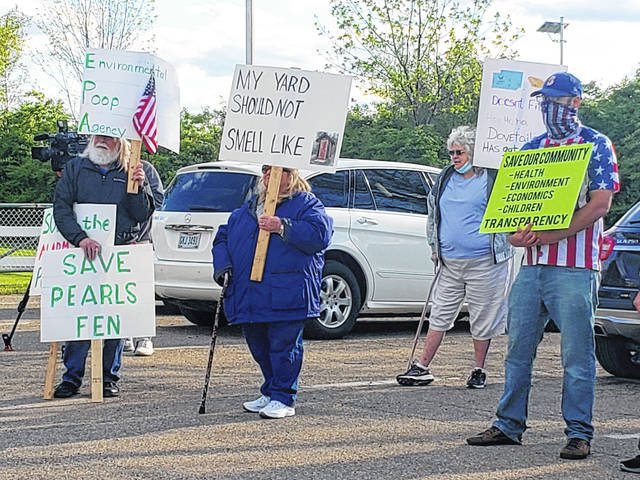
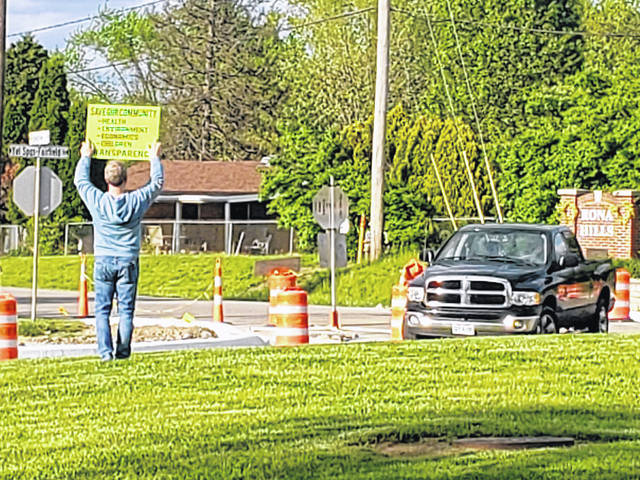
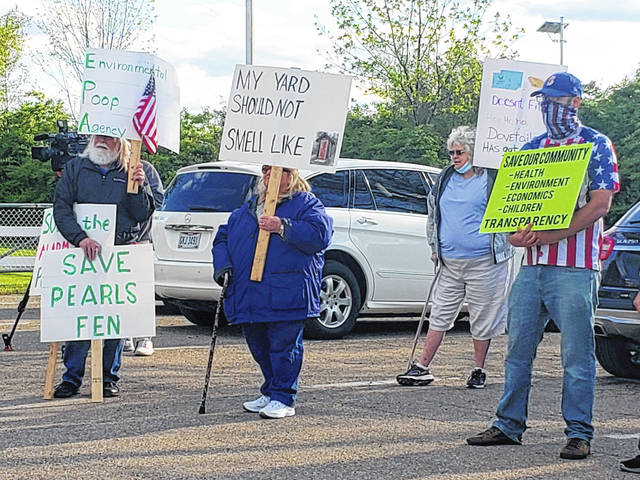
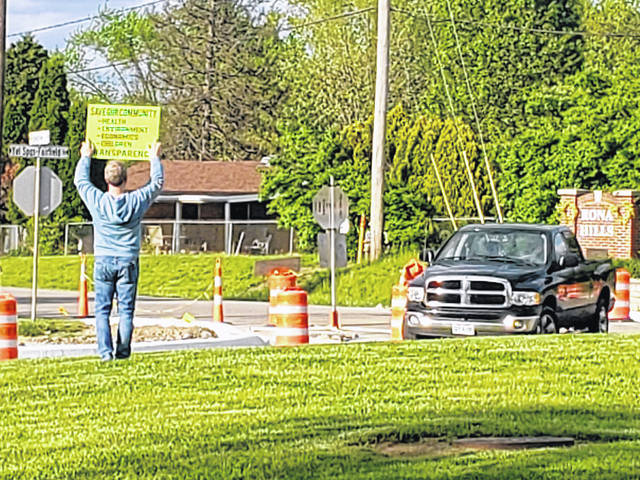
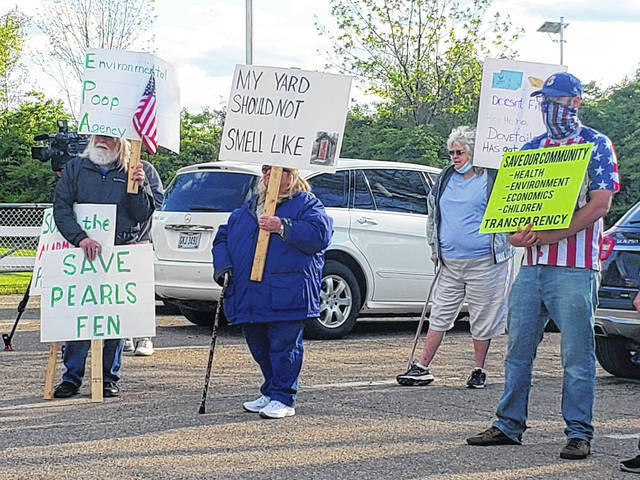
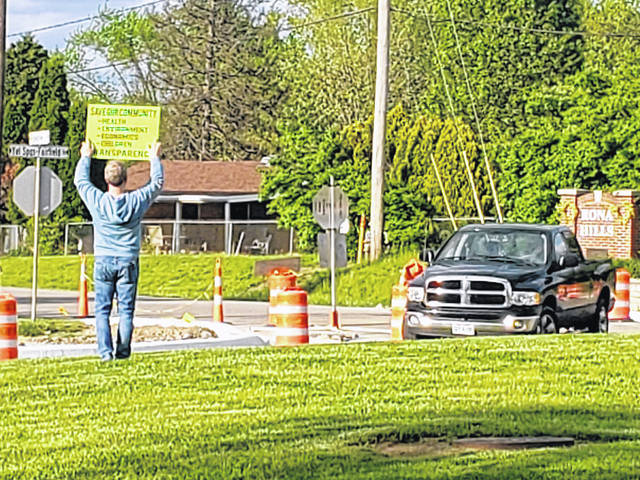
BATH TOWNSHIP — The Bath Township trustees will move forward with an appeal of a Greene County Common Pleas Court ruling declaring the Dovetail biodigester, located in Bath Township, as a public utility. The ruling, handed down by Judge Michael Buckwalter, exempts Dovetail from township zoning regulations and would require the township to vacate notices of violation against the facility.
The trustees met with legal counsel on Monday, May 3, and voted to appeal the decision in a special meeting. Lester and Trustee Steve Ross voted unanimously to appeal. Trustee Tom Pitstick abstained from both the meeting and the vote.
“The Bath Township trustees do not agree with Judge Buckwalter’s decision, and we voted to appeal that decision,” Trustee Kassie Lester said.
Residents of the township and Fairborn are deeply concerned that declaring an operation, such as those operated by Dovetail and parent company Renergy, as a public utility will open the door to other companies declaring themselves public utilities to avoid local regulation.
“Claiming they are a public utility in order to fit into an exception to local zoning authority is ridiculous,” said Sarah Fulton, a resident and member of Bath Township Concerned Citizens. “You see companies that want to skirt local control, but ultimately it is local communities being affected.”
The Dovetail biodigester uses an anaerobic process to break down food waste and manure, called “biosolids,” into methane gas, which is used for electricity, and fertilizer, which is used on surrounding farmland. Dovetail and Renergy operate the biodigester facility at 1156 Herr Road.
According to court documents, Dovetail is a provider of renewable energy credits through the Public Utilities Commission of Ohio (PUCO). The biodigester at Emerald BioEnergy, LLC, Dovetail’s sister facility, was declared a public utility exempt from zoning regulation in February 2021 by a judge in Morrow County, where Emerald is located.
However, in an email obtained by this newspaper, PUCO said that Emerald BioEnergy, LLC is not a public utility under its jurisdiction.
In a statement, BTCC said that if this ruling is allowed to stand, every local governments, including townships and municipalities, will be “overrun by companies claiming they are a public utility, and local governments will have absolutely no say in what comes into their community.”
“This has become a much larger issue than just our local concerns of zoning regulations, health and safety issues, environmental issues, economic impacts, and lack of transparency,” the statement read.
Though Dovetail is regulated by the Ohio EPA, removing it from the jurisdiction of the township may potentially open a regulatory void, a sentiment that trustees have echoed.
“The fact that they don’t have to report to the Public Utilities Commission of Ohio is troubling,” Ross said.
“They’re trying to take powers away from townships regarding zoning,” Lester said. “A facility of this type should still have to be bound by Township rules and regulations.”
“The governing body of townships can look towards the future of their townships for the good of their citizens, not someone sitting behind a desk in Columbus who doesn’t know the community and the people who live and work here,” Lester added.
In a letter responding to Fairborn City Schools’ appeal to the Ohio EPA, Renergy’s lawyers wrote to the district that there is “no evidence that odors from Dovetail are noticeable 1.5 miles west of the facility,”which is the distance from the biodigester to the proposed site of the new Fairborn high school. Lawyers also wrote that there is “no evidence” that the same odors had “caused respiratory illness or irritation to anyone.”
There have been 127 complaints registered to the Ohio EPA regarding Renergy and Dovetail between April 2017 and March 2021, though Dovetail has never been cited by the EPA on account of odor. In addition to formal EPA complaints, the mobile app SmellMyCity logged 218 user reports of odor between September 2019 and February 2021.
The disconnect between the Ohio EPA and citizens is keenly felt by some residents. Nathan Hulick, a Bath Township resident, said he was “stonewalled” for fifteen months when he requested documents about Renergy from the Ohio EPA.
“I requested documents in January of 2020,” Hulick said. He received the documents last month. “As a citizen, how am I supposed to look at these companies and this organization?”
Greene County Prosecutor David Hayes, whose office represents the township, sympathized with citizens appealing to the EPA.
“It is difficult, because a lot of the regulations of things like this are not local,” he said. “I think what frustrates people – and I say this as a citizen – is that it’s difficult when you don’t have an avenue for redress that involves an elected official who’s responsive to the people. You’re left with the EPA, with the siting board, PUCO, you’re left with these agencies, and that’s frustrating for some.”
Mike Uecker, a Bath Resident, spoke during the trustee meeting in favor of the biodigester.
“The actions of some seem similar to those who have moved next to an airport and then complain about the noise,” he said.
Though the notice of appeal will be filed soon, a final court decision is unlikely until at least next summer, trustees estimated. Appeal would be held at second appellate court in Montgomery County.
In terms of the new 32-million lagoon that the company plans to build on Byron Road, Lester said she suspects that the Ohio EPA will hold off issuing new permits for construction until legal action is completed.
“We have to protect this area, protect our schools, and protect our water,” Lester said. “We will do what we need to do.”



